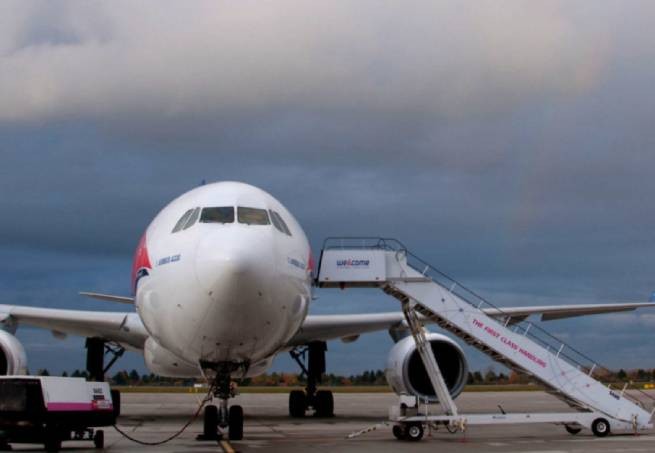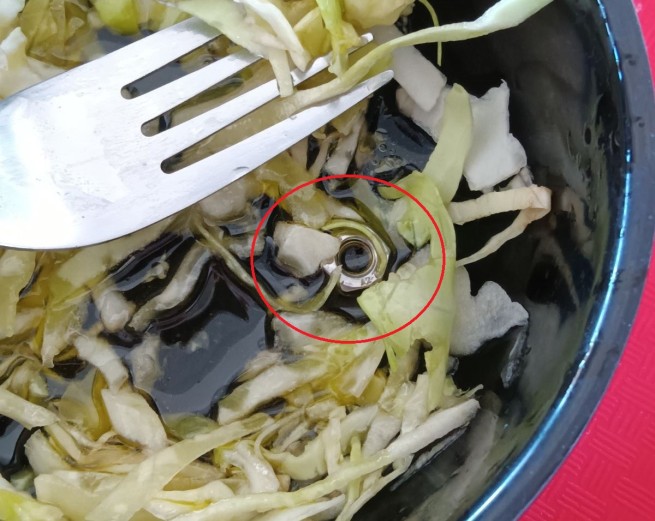Minister of Migration and Asylum of Greece Panayotis Mitarakis met with Minister of the Interior of Malta Byron Camilleri in Valletta, Malta.
The meeting took place at the jubilee conference dedicated to the 10th anniversary of the European Asylum Support Office (EASO).
Mitarakis and Camilleri discussed the common challenges the two countries face in managing migration as frontline countries.
At the same time, they expressed a common belief that the new European Pact on Migration and Asylumnegotiated is not a precondition for action on external relations, border protection and return.
Both ministers stressed the need for effective border protection and the creation of a solidarity system as a precondition for a sustainable and equitable common European policy on migration and asylum.
Finally, the Minister of the Interior of Malta stressed the need to strengthen cooperation with the Libyan authorities, since most of the flows come from this country.
# Ελλάδα & # Μάλτα συμφωνούν ότι το νέο # Σύμφωνο δεν είναι προαπαιτούμενο για ανάληψη δράσης σε εξωτερικές σχέσεις,# προστασία των συνόρων και επιστροφές.
Κοινή μας πεποίθηση με τον @byroncamilleri στο πλαίσιο του επετειακού συνεδρίου για # 10yearsEASO @EASO https://t.co/mI3I2M4eJr pic.twitter.com/nj7chyFlvR
– Νότης Μηταράκης – Notis Mitarachi (@nmitarakis) October 15, 2021
Information about the EU Migration and Asylum Pact was published September 29, on the website of the Council of Europe.
The Commission adopts the updated EU Action Plan to Combat the Smuggling of Migrants and Notice of application of the Employer Sanctions Directive… As part of an integrated approach to migration in accordance with New Covenant on Migration and Asylum these initiatives aim to prevent the organized exploitation of migrants and reduce irregular migration, in line with the New Pact’s goal of promoting sustainable and orderly migration management. These initiatives will respond to both the continuing challenges to dismantling organized crime groups and the need to adapt to new challenges, including state-sponsored smuggling of migrants, in order to respond to the situation at the EU’s external borders with Belarus.
Margaritis Schinas, Vice President of the European Commission for Promoting Our European Way of Life, said: “Last week marks a year since we presented our proposals for a New Pact on Migration and Asylum. While progress in their adoption has been painfully slow, at the same time, migration challenges continued to emerge in new and old forms. From the ongoing pressures in the Central Mediterranean to the deteriorating situation in Afghanistan and renewed pressures on our eastern borders, all these events demonstrate the urgent need for a sustainable European asylum and migration system. The Covenant’s proposals, if adopted, could significantly improve the ability of Member States to address a range of issues they currently face. And if we have learned anything in recent years, we should have learned that flying here alone is not an option. It’s time to join forces to find solutions. “
Home Affairs Commissioner Ilva Johansson said: “We have made significant progress on the New Pact on Migration and Asylum, and recent events highlight the urgent need to make progress on our carefully balanced proposals: proposals for screening and [введении системы] Eurodac will enable due diligence on all who arrive in the EU and will be complemented by our proposals for solidarity. Agreeing on our resettlement framework will help Europe speak out more loudly on the global stage by showing how we and our member states offer protection to people in need in practice. We have a balance, now we need implementation. “
Migration and Asylum Report: A New Covenant, One Year Later
Today’s report summarizes the achievements and key events in migration and asylum policies over the past year and a half, identifies key challenges and highlights the prospects for progress, and outlines steps that will lead to more reliable, viable and equitable migration and asylum policies.
He covers all aspects of migration management. It includes the status of migration movements, assesses the impact of the pandemic, the actions of EU border management and asylum agencies, the ongoing support provided by the Commission to member states under pressure, funding and the issue of unauthorized movements within the EU. He covers the immediate EU response to the situation in Afghanistan, EU support for Greece and the response to the arrival of migrants from Belarus. It provides detailed information on progress in strengthening the legal framework and provides a comprehensive overview of cooperation with partner countries based on the new approach outlined in the Covenant. The report also reviews progress on integration and inclusion.
The EU has taken many actions to increase its capacity to respond to the emerging challenges of migration management. Moving quickly and constructively through the New Pact legislative process is now critical and will serve to further strengthen Europe’s ability to defend its borders, receive humanely those who have the right to come, and respect those who do not have the right to come. respecting their dignity, in accordance with the values and principles of the EU.
Updated EU Action Plan Against Smuggling of Migrants (2021-2025)
Preventing and combating the smuggling of migrants is a key strategic goal New Covenant on Migration and Asylum and EU Security Union strategieswhich requires constant international cooperation and coordination. Building on the progress made in implementing the first EU Action Plan to Combat the Smuggling of Migrants (2015-2020)The Commission, working with the High Representative, will:
Develop Anti-Smuggling Operational Partnerships through specific instruments through comprehensive, balanced, individual and mutually beneficial migration partnerships, further enhancing trust and mutual cooperation. Continue to develop all operational, legal, diplomatic and financial instruments at the disposal of the EU to respond to the instrumentalization of irregular migration by state actors, including through the adoption of implicated measures in various areas, such as visa services, trade, development, financial help and others. Partial suspension Visa Facilitation Agreements with Belarusthe Commission is proposing today is an example of such measures. Improve the implementation of the regulatory framework for punishing smugglers; including through the UN Protocol against the Smuggling of Migrants by Land, Sea and Air, supplementing the UN Convention against Transnational Organized Crime, and within the EU – the Anti-Assistance Package. Improve the implementation of the regulatory framework to protect against exploitation; including Anti-Trafficking in Persons Directive, Victims’ Rights Directive, Residence Permit Directive and Employer Sanctions Directive… Respond to evolving online practices and tools that facilitate smuggling by increasing operational cooperation and information exchange between national and EU authorities. Enhanced research and data collection to better understand migration trends, the nature and extent of criminal networks, the impact of anti-smuggling policies and the “working methods” of criminal networks.
Notice with information on the application of the Employer Sanctions Directive
Illegal employment is a key incentive for illegal migration. It is damaging, both human and economic, putting people at risk of exploitation, as well as leading to losses in public finances and infringing on individual and social rights.
Employer Sanctions Directive creates a European legal framework for preventing and responding to the illegal employment of irregular migrants. Today’s report identifies actions to improve the directive’s implementation mechanisms to address ineffective use by Member States of rules on sanctions, safeguards and inspections to identify abusive employers and protect migrants from exploitation. To support Member States in improving the implementation of generally accepted EU rules, the Commission will:
Facilitate dialogue with the authorities of Member States and various stakeholders, including by reactivating the ad hoc Expert Group on Irregular Migration under the Employer Sanctions Directive in 2021. Support the exchange of best practices by working with stakeholders such as national labor and immigration authorities, trade unions, civil society organizations, social partners, international organizations and the European Platform to Combat Undeclared Work. Continuously monitor the implementation of the Directive and focus on its effective implementation, initiating infringement proceedings if necessary.
By the end of 2022, the Commission will implement the measures presented in the Communication and will report on the results achieved in the next Implementation Report, which is expected no later than 2024. In light of the progress made, the Commission will then consider the need to amend the existing legal framework.
For reference
This package of proposals is one of the follow-up to the Covenant, in line with the statements made last September.
In addition to the data presented in the report on migration and asylum, new statistical information is also available at dedicated statistical websiteupdated today. The latest data confirms that the COVID-19 pandemic has had a significant impact on migration in 2020, resulting in a decrease in both legal and irregular arrivals compared to 2019. Preliminary figures show that the EU’s population declined by about 300,000 in 2020, partly due to a decrease in net migration, but also due to an increase in deaths from the pandemic. The decline in arrivals in 2020 was temporary as available data for 2021 indicates year-on-year growth. This, in particular, concerns irregular arrivals along the routes of the Central Mediterranean, Western Mediterranean and eastern borders (from Belarus). Member states continued to reduce the backlog of asylum applications: at the end of June, there were about 700,000 applications pending in the EU, the lowest number since mid-2015.






More Stories
The number of refugees from Ukraine approached 3 million
How to find housing for refugees from Ukraine through Airbnb
Greece will send transport to Poland for refugees